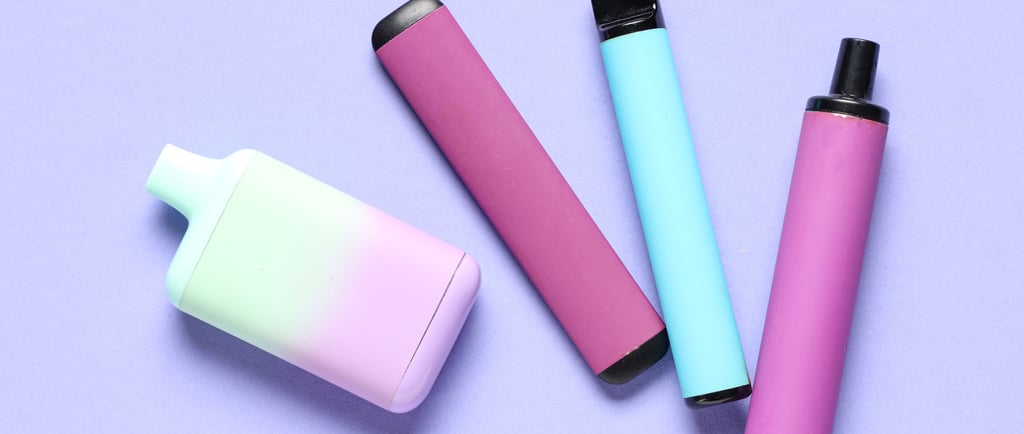Can Vaping Cause Infertility?
2 min read


If you’ve swapped cigarettes for a vape or are just socially vaping now and then, you might be wondering: Could this affect my fertility?
It’s a smart question. Vaping has skyrocketed in popularity, especially among younger adults, but the science is still catching up. While marketed as a “safer” alternative to smoking, early studies suggest vaping may come with real reproductive risks—especially if you're trying to conceive.
Let’s break down what we know, what’s still unclear, and how to make an informed choice for your fertility
First, What’s in a Vape?
Vape pens and e-cigarettes usually contain:
Nicotine (even in many “nicotine-free” products)
Flavoring chemicals (like diacetyl, linked to lung disease)
Propylene glycol and glycerin, which form the vapor
Heavy metals from the device’s heating element (like lead and nickel)
These ingredients don’t just stay in your lungs—they enter your bloodstream and can reach your ovaries, uterus, or testes.
How Vaping May Affect Female Fertility
The research is still emerging, but early findings suggest vaping may impact fertility by:
Disrupting Egg Quality
Nicotine and oxidative stress can interfere with the development of healthy eggs and damage the DNA inside.
Affecting Hormone Balance
Nicotine may disrupt the hormones responsible for ovulation (like LH and FSH), making cycles irregular or affecting ovulation altogether.
Altering the Uterine Environment
Some studies suggest vaping can impair blood flow and reduce endometrial receptivity, which may affect implantation.
How Vaping May Affect Male Fertility
Sperm are especially sensitive to environmental toxins. In men, vaping has been linked to:
Reduced sperm count and motility
Higher levels of sperm DNA fragmentation
Hormonal disruptions, including lowered testosterone
While not all users will experience these effects, the risks increase with frequency and duration of use.
Is Vaping “Better” Than Smoking for Fertility?
It depends what you're comparing. Vaping may expose you to fewer carcinogens than traditional cigarettes, but it’s not fertility-safe. If you're vaping as a stepping stone to quitting altogether, that’s a valid starting point.
But if you’re actively TTC, egg freezing, or preparing for IVF, now’s the time to aim for zero exposure to nicotine and related toxins.
What You Can Do Instead
If you vape and want to protect your fertility:
Start reducing gradually if quitting cold turkey feels too intense
Switch to nicotine-free options as a bridge step (but monitor ingredients)
Support detox with antioxidants (like CoQ10, vitamin C, and NAC)
Track your cycle to spot any changes in ovulation or PMS symptoms
Quitting, even for a few months, can improve egg and sperm quality. Your body responds faster than you think.
Final Thoughts
Vaping may feel low-stakes, but it still impacts your body—and your fertility. If you're planning to conceive or freezing your eggs, this is the moment to get curious about what you're inhaling.
👉 Inside our Fertility 101 course, we unpack the real lifestyle factors that affect your fertility, from hormones to habits, so you can make decisions with confidence, not confusion.
You deserve support that’s judgment-free and science-backed—and we’re right here with you.
FAQ
Is nicotine-free vaping safe for fertility?
It’s better than nicotine vapes, but still may contain chemicals that affect hormones and cells. Caution is still advised.
How long should I be vape-free before trying to conceive?
Ideally at least 3 months to allow egg or sperm cycles to regenerate.
Can occasional vaping affect fertility?
While occasional use may be lower risk, there’s no known “safe” level—especially if you’re actively TTC.
You don’t have to figure this alone
Inside fertie, you’ll get:
Expert-led courses to make informed decisions
Private support from women on the same path
Exclusive partner clinic perks & discounts
Disclaimer: Prices and treatment protocols vary by clinic and individual. Always consult with your fertility specialist for accurate, up-to-date pricing and guidance tailored to your situation.
© 2025. All rights reserved.
Cookie Policy

We are committed to educating and empowering women to take control of their fertility and to live life on their own terms.
FOLLOW US ON
RESOURCES
CONTACT US
